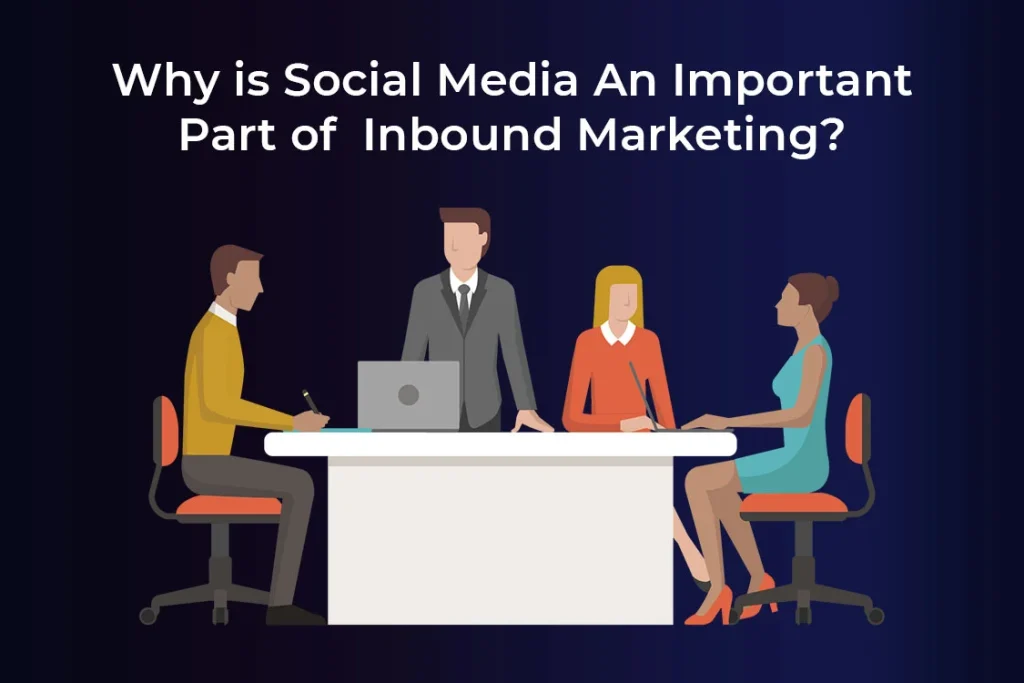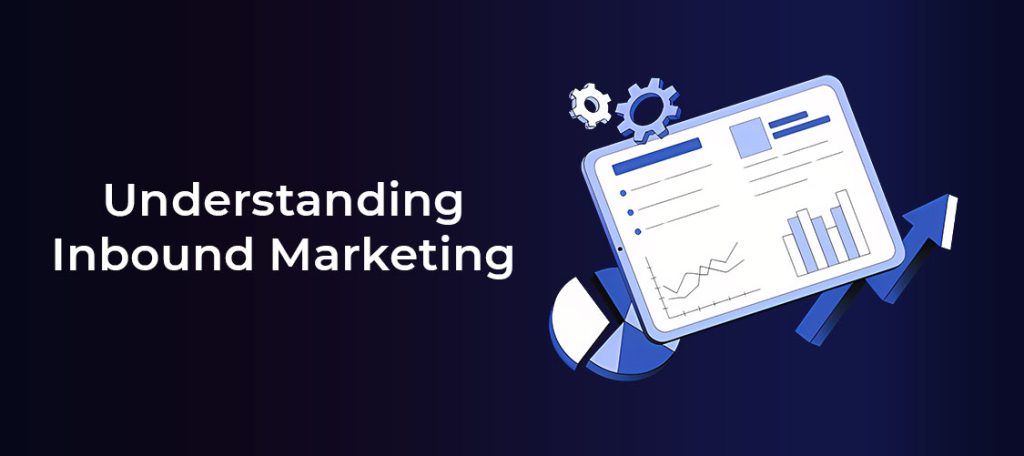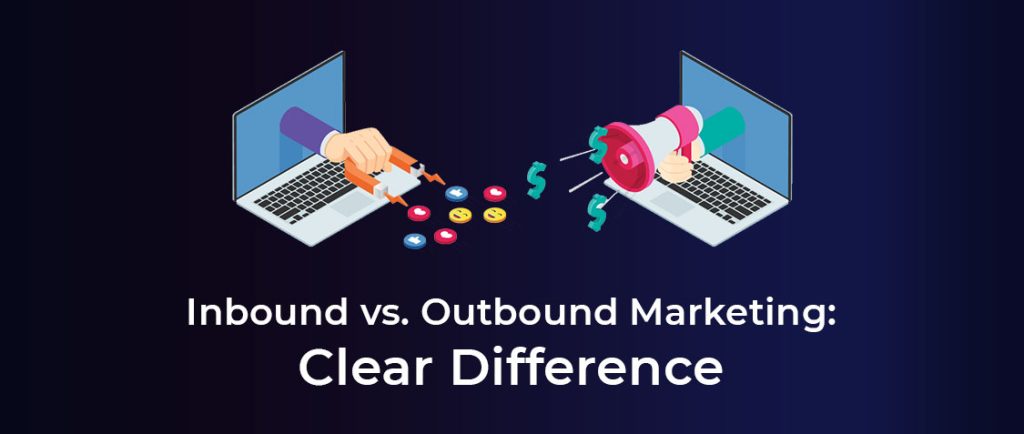Why is Social Media an Important Part of Inbound Marketing?

Understanding Inbound Marketing:

The objective of inbound marketing is to draw in and involve prospective clients by offering insightful information related to your goods or services. By utilizing multiple digital channels like as blog postings, search engine optimization, and email campaigns, inbound marketing develops a true and long-lasting relationship with the target audience. Businesses can establish themselves as industry experts by addressing their client’s concerns and interests while leading them through the buyer’s journey. This sort of marketing produces leads, promotes sales, and builds a devoted customer base that willingly advocates for the brand, resulting in long-term growth and success.
Social Media’s Role in Inbound Marketing:
Inbound marketing and social media are closely related because both strive to promote a company’s products and services to the appropriate audience. Social networking is essential in any business. Social media marketers specialize in advertising a company’s products and services across several channels. By precisely targeting the proper audience with individualized content, social media provides you with the most visibility and connection.
Social networking sites emphasize two-way contact as opposed to traditional one-way methods such as email and advertisements. As the social media landscape has evolved, clever brands are increasingly using captivating content to create meaningful discussions with their audience. Inbound marketing is based on cultivating a loyal customer base, and social media allows businesses to reach a larger audience, understand their needs, and engage with them on a more personal level.
Inbound vs. Outbound Marketing: Clear Difference:

Outbound marketing and Inbound marketing are two unique methods of reaching out to and engaging new clients. While both tactics offer advantages, there is a major difference between them. Outbound marketing, often known as conventional or interruption marketing, entails broadcasting messages to a large number of people in the hopes of capturing their attention. TV ads, print advertisements, cold phoning, and direct mail are examples of such approaches. The goal is to reach as many people as possible without necessarily targeting specific individuals.
On the other hand, Inbound marketing focuses on the client. It tries to attract and engage potential consumers by offering useful material that is relevant to their interests and requirements. Rather than interrupting people’s lives with uninvited communications, inbound marketers strive to build genuine connections by providing useful information through channels such as blogs, social networking platforms, search engine optimization (SEO), email newsletters, and others. The primary distinction between inbound and outbound marketing is how prospects are contacted.
Benefits of Social Media for Inbound Marketing:
Social media has become a vital component of our everyday lives, and businesses are capitalizing on its influence to fuel their inbound marketing efforts. But what are the advantages of using social media for inbound marketing? Social networking may help you build brand awareness and authority in your sector. You can establish a strong online presence that draws potential consumers by continuously providing valuable material and connecting with your audience on sites such as Facebook, Instagram, Twitter, and LinkedIn.
Additionally, social media offers a unique opportunity to get to know your target audience on a more personal level. You may learn about their preferences, wants, and pain areas through chats and interactions on various sites. This knowledge is crucial when it comes to generating targeted messaging and creating content that resonates with the intent of your audience. Social media plays an important function in enhancing and supplementing your SEO efforts. Search engines consider social signals (likes/shares), engagement rates, and respectable backlinks, all of which can be influenced by good social media efforts.
Social Media Contributes to Brand Awareness and Authority:
Social media is critical for businesses in terms of increasing brand awareness and establishing authority. With billions of individuals actively engaged on social media, it offers a fantastic opportunity to express your brand’s personality and interact with your target audience. One of the most important advantages of social media is its capacity to improve brand visibility. You may reach a larger audience and generate top-of-mind awareness by continuously publishing quality material and engaging with followers.
Social media sites also enable you to use user-generated information, such as customer testimonials or favorable reviews, to boost the legitimacy of your business. Another area where social media shines is in establishing authority within your sector. By frequently offering helpful and educational material that solves your audience’s problem points, you establish yourself as an expert in your subject. This not only helps followers create trust but also attracts new potential consumers who are looking for solutions to their difficulties.
Get to Know Target Audiences and Their Intentions:
One of the primary benefits of using social media for inbound marketing is the opportunity it provides to get to know your target audiences and understand their intent. Social media platforms provide a window into your audience’s life and tastes, providing vital insights that can shape your marketing strategy. You may obtain a better idea of who your followers are, what they like, and what motivates them by actively connecting with them on social media. This understanding enables you to produce content that speaks to their wants and desires, boosting the likelihood of getting qualified leads. You can track conversations about key topics in real-time using social listening tools and analytics supplied by various platforms. This allows you to detect patterns or pain points that your target audience may be experiencing. With this knowledge, you can modify your messaging and present yourself as an authority in resolving their issues.
Enhances and Complements Your SEO:
Not only is social media an effective tool for engaging with your target audience and increasing brand awareness, but it also plays an important part in boosting and supplementing your SEO efforts. What effect does social media have on SEO? Let us investigate. When you generate high-quality material and publish it with your followers on social media sites, you enhance the likelihood of people engaging with that content. Likes, comments, shares, and clicks send good signals to search engines, indicating that your material is important and relevant. As a result, search engines may prioritize your website in their rankings. Social media can help attract visitors to your website. When you distribute links to your blog articles or landing pages on social networking platforms such as Facebook or Twitter, interested users are more likely to visit your website.
A Helpful Research Tool for Your Company:
Social media has evolved into more than just a place to share kitten videos and vacation images. It has evolved into a formidable research tool that can deliver useful business insights. With billions of users across multiple platforms, social media provides an enormous quantity of data that can help you better understand your target demographic. One method social media can be used as a research tool is to get real-time feedback from customers. You can acquire vital insights into what people are saying about your business or sector by monitoring discussions, comments, and reviews. This data can be utilized to spot trends, respond to customer issues, and improve your products or services.
The Return Could Offer High ROI:
One of the primary reasons that social media is such an important component of inbound marketing is that it provides a high return on investment (ROI). When done correctly, social media may be a low-cost tool to reach and engage your target audience. To begin with, social media allows you to boost your brand’s visibility and awareness. You can build a strong online presence that helps establish trust and authority in your business by continuously producing great material and engaging with your followers. higher brand recognition can lead to higher website traffic, leads, and, eventually, conversions. Social media allows organizations to gain real-time information about their target customers. You may acquire useful data about who is engaged with your content, what they are interested in, and how they interact with your business. By using analytics tools supplied by platforms such as Facebook or Twitter.
Top Practices for Social Media Inbound Marketing:
Know Your Audience:
Before you begin social media marketing, you must first establish who your target audience is. Conduct extensive research to learn about their demographics, interests, and internet activities.
Consistent Branding:
Keep your brand image consistent across all social media platforms. To ensure brand recognition and authority, use the same profile picture, cover photo, and color scheme.
Interact with Your Followers:
Don’t just post material and then disappear! Respond to comments, emails, and mentions from your fans as soon as possible. Encourage dialogue and build a sense of community around your brand.
Create Valuable Material:
Share stuff that is instructive, interesting, or motivating to your target audience. While quietly marketing your products or services, provide insights, tips, or industry news that correspond with their interests.
Use Visuals:
Visuals are effective tools for catching attention on social media platforms such as Facebook and Instagram. Invest in high-quality photos or films that communicate captivating brand stories.
Timing is Key:
Consider when your target audience is most active on social media sites; this will allow you to maximize engagement rates for each post.
Make Use of Influencers:
Collaborate with influencers who have a large following in your specialized industry to broaden the reach of your content and raise brand awareness.
Metrics Monitoring:
Conclusion:
Social networking is a strong tool for improving the performance of your inbound marketing efforts. We can use SMM platforms to attract your target audience’s attention by delivering valuable material. You make consumers want to consume your material rather than forcing them to view it through aggressive outbound marketing methods. You may accomplish this by providing valuable and entertaining content. MediaEclips is a prominent social media marketing agency offering exceptional SMM services to improve your business’s inbound marketing. You can trust us to acquire unmatched SM marketing services. Call us today or get a free quote for further information.

